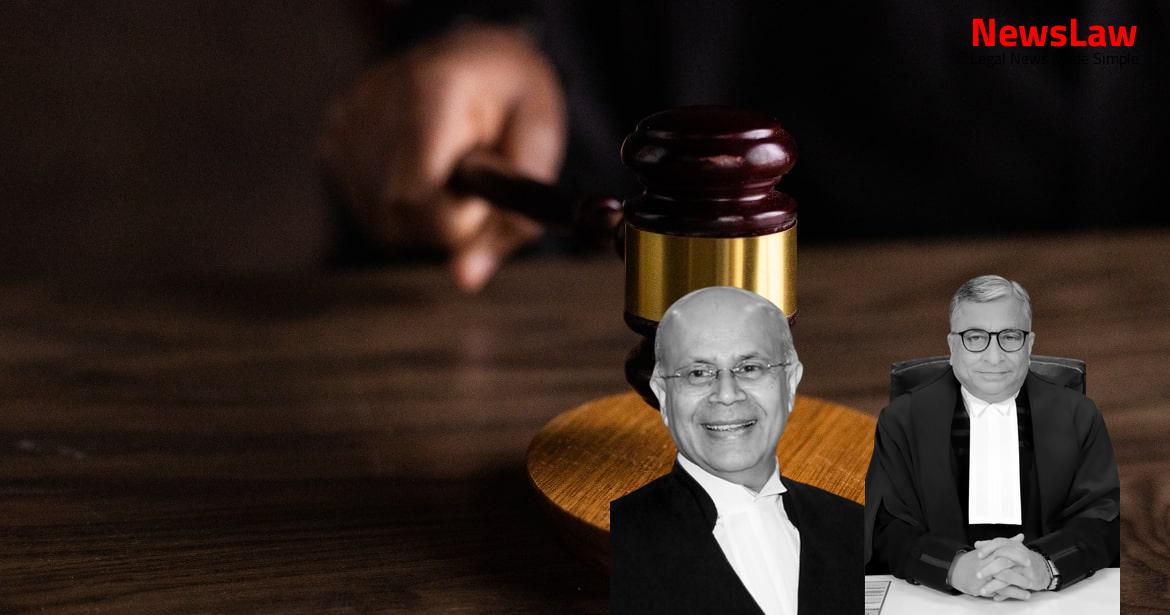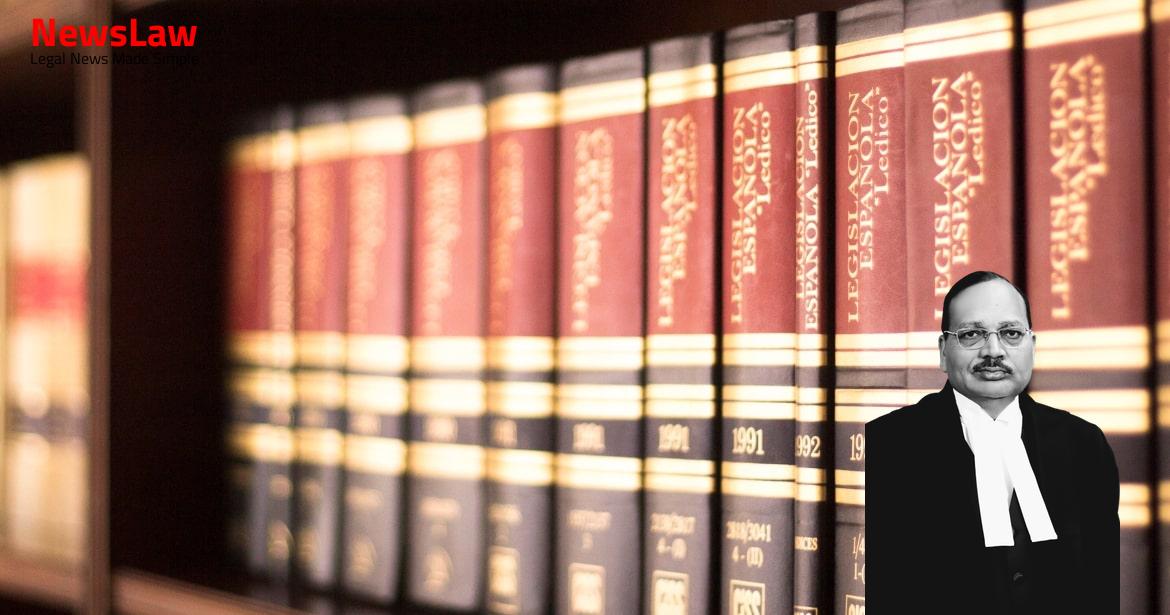Delve into a legal case involving a land possession dispute where the court’s meticulous analysis of res judicata and termination of lease issues brings forth crucial insights. The court’s interpretation of key legal principles shapes the outcome of the case, highlighting the importance of understanding intricate legal nuances in property disputes.
Facts
- The defendant’s appeal was allowed by the High Court of Delhi on 12 November, 2010, resulting in the dismissal of the suit for possession of land measuring 3 Bighas 11 Biswas in Khasra No. 9/19.
- The Reference Court framed issues to determine the claims of the rival claimants regarding the possession of the land.
- The defendant claimed adverse possession and ownership of the land against the person who had initially leased it to him.
- There was a dispute regarding the termination of the lease, with the defendant asserting that it had ended when a notice for forfeiture was issued by the plaintiffs on 23rd September, 1954.
- The plaintiffs argued that the termination of tenancy was not valid as per the notice served, citing Sections 111 and 106 of the Transfer of Property Act, 1882.
- The First Appellate Court upheld the trial court’s findings, dismissing the defendant’s plea regarding the validity of the notice of termination and the claim of limitation as raised by the defendant’s counsel.
- The High Court could not entertain the second appeal and reverse the judgment of the First Appellate Court.
- Clause 9 of the lease did not imply immediate termination upon non-payment of rent for one year, but only granted the lessor the right to eject the lessee.
- The High Court allowed the second appeal based on the finality of the finding that non-payment of rent for 12 months terminated the lease.
- The finding regarding the lease termination upon non-payment of rent operated as res judicata.
- The High Court framed two substantial questions of law.
- The period of limitation under Article 67 of the Limitation Act was deemed to be 12 years, starting from the date of tenancy termination as per the High Court’s ruling.
- The trial court returned specific findings.
Also Read: Legal Analysis on Arbitration Petition Limitation Period
Issue
- The Full Bench examined whether the possession of the tenant is adverse to the landlord upon the expiration of the tenancy period solely due to non-payment of rent.
- In a suit based on title by a landlord against an ex-tenant, the applicability of either Article 139 or Article 144 was considered.
- Two key issues were framed in the suit: 1) Determining if the deceased solely received the rent or if it was received jointly with his brother C. 2) Establishing if any rent was due from the tenant B and the exact amount owed.
Also Read: Analysis of High Courts’ Jurisdiction and Court Orders Under Article 142
Arguments
- Defendant did not submit the pleadings of previous litigation to ascertain applicability of res judicata.
- The Reference Court’s focus was on compensation for lease hold rights, not landlord’s possession rights.
- The issue of landlord’s possession rights was not within the scope of the reference.
- The respondent contended that the lease stood determined as per the award of the Reference Court and relied on findings recorded by the High Court.
- The respondent continued to be in possession of the leased land as per the registered lease deed dated 22 September, 1954.
- The respondent admitted the ownership of the appellants before the Reference Court, which operates as estoppel against the respondent regarding the title of the appellants.
- The claim of compensation by the respondent was declined due to non-payment of rent disentitling the respondent from compensation.
- The findings recorded by the High Court were deemed clearly erroneous in law and were set aside.
Also Read: Electoral Malpractices in Mayor Election
Analysis
- The respondent did not prove hostile possession to the knowledge of the true owner at any time before or after the award of the Reference Court.
- The First Appellate Court allowed the defendant to raise a plea of limitation without amending the written statement, which was deemed erroneous.
- The issue before the Reference Court was limited to the apportionment of compensation after land acquisition, not the termination of tenancy.
- The High Court incorrectly held that the Reference Court’s decision operates as res judicata based on the termination of tenancy.
- The suit for possession was deemed not covered by Article 65 but rather by Article 67 of the Limitation Act.
- The High Court’s decision that the suit was barred by limitation in terms of Article 66 was found to be erroneous.
- The finding of the Reference Court that the lease stood determined on account of non-payment of rent was considered limited and not binding in a suit for possession.
- The continuing possession of the lessee maintained the stand that the tenancy continued regardless of non-payment of rent.
- The suit filed within 12 years of the determination of the tenancy by efflux of time was deemed within the period of limitation.
- The statement of law delineated by Mulla is the correct one regarding res judicata.
- To determine if a matter was directly and substantially in issue, examination of the plaint, written statement, issues, and judgment is necessary.
- Previous decision on a matter in issue alone is res judicata, not the reasons for such decision.
- Possession of a licensee on expiry of the license period is that of a tenant at sufferance.
- Article 139 of the Limitation Act and Section 111 of the TP Act were considered in various judgments.
- Tenancy at sufferance requires lawful entry into possession recognizing the landlord’s title.
- A lessee continues to be liable to the lessor until possession is restored to the lessor.
- Important cases like Bhawanji Lakhamshi, Badrilal v. Municipal Corpn. of Indore, and R.V. Bhupal Prasad were referenced.
- A tenant cannot deny the landlord’s title as long as possession is not restored by surrender.
Case Title: NAND RAM(D) TH. LRS. . Vs. JAGDISH PRASAD(D)TH.LRS (2020 INSC 315)
Case Number: C.A. No.-009918-009918 / 2011



